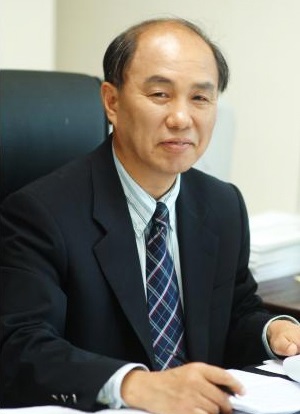people

< President Jo-Won Lee >
Chair professor Jo-Won Lee from Hanyang University was appointed as the sixth president of the National Nano Fab Center (NNFC). President Lee will serve his term for three years from September 16.
The NNFC is an affiliated institution of KAIST, established in 2002 to foster qualified manpower in the field of nanotechnology (NT) in Korea. The NNFC features cutting-edge NT-related research equipment and fabrication services, and provides students and researchers quality education and training. The NNFC seeks to become a world-leading institute by performing extensive business operations including the commercialization of NT research results and conducting various multidisciplinary projects.
President Lee received his BS degree from Hanyang University and his MS and PhD degrees in metals science from the Pennsylvania State University. He taught nano-conversion science at his alma mater, Hanyang University, while serving as the director of the National Program for Tera-level Nanodevices. President Lee also guided the governmental planning committee for the 10-year Korea Nanotechnology Initiative as secretary general.
President Lee said, “The NNFC has been striving to develop Korea as the world’s strongest nation in nanotechnology thus far. All of the members of the NNFC will continue giving our best effort for the improvement of our nation’s nanotechnology.”
(END)
-
research KAIST Uses AI to Discover Optimal New Material for Removing Radioactive Iodine Contamination
<(From the Right) Professor Ho Jin Ryu, Department of Nuclear and Quantum Engineering, Dr. Sujeong Lee, a graduate of the KAIST Department of Materials Science and Engineering, and Dr. Juhwan Noh of KRICT’s Digital Chemistry Research Center> Managing radioactive waste is one of the core challenges in the use of nuclear energy. In particular, radioactive iodine poses serious environmental and health risks due to its long half-life (15.7 million years in the case of I-129), hi
2025-07-03 -
research KAIST Enhances Immunotherapy for Difficult-to-Treat Brain Tumors with Gut Microbiota
< Photo 1.(From left) Prof. Heung Kyu Lee, Department of Biological Sciences, and Dr. Hyeon Cheol Kim> Advanced treatments, known as immunotherapies that activate T cells—our body's immune cells—to eliminate cancer cells, have shown limited efficacy as standalone therapies for glioblastoma, the most lethal form of brain tumor. This is due to their minimal response to glioblastoma and high resistance to treatment. Now, a KAIST research team has now demonstrated a new th
2025-07-02 -
event 2025 KAIST Global Entrepreneurship Summer School Concludes Successfully in Silicon Valley
< A group photo taken at the 2025 GESS Special Lecture.Vice President So Young Kim from the International Office, VC Jay Eum from GFT Ventures, Professor Byungchae Jin from the Impact MBA Program at the Business School, and Research Assistant Professor Sooa Lee from the Office of Global Initiative> The “2025 KAIST Global Entrepreneurship Summer School (2025 KAIST GESS),” organized by the Office of Global Initiative of the KAIST International Office (Vice President
2025-07-01 -
people KAIST Invites World-Renowned Scholars, Elevating Global Competitiveness
< Photo 1. (From left) Professor John Rogers, Professor Gregg Rothermel, Dr. Sang H. Choi > KAIST announced on June 27th that it has appointed three world-renowned scholars, including Professor John A. Rogers of Northwestern University, USA, as Invited Distinguished Professors in key departments such as Materials Science and Engineering. Professor John A. Rogers (Northwestern University, USA) will be working with the Department of Materials Science and Engineering from July 2025 to J
2025-06-27 -
research New and Highly Efficient Recycling Technology to Turn Used Tires into Raw Materials for Rubber and Nylon
< (From left) Kyungmin Choi (MS-Ph.D. integrated course, Department of Chemistry), Dr. Beomsoon Park, Professor Soon Hyeok Hong, Dr. Kyoungil Cho > Approximately 1.5 billions of tires are discarded globally every year, and this is identified as one of the major causes of serious environmental pollution. The research team at the Department of Chemistry at KAIST has achieved a breakthrough by selectively converting waste tires into high-purity cyclic alkenes, valuable chemical buildin
2025-06-26